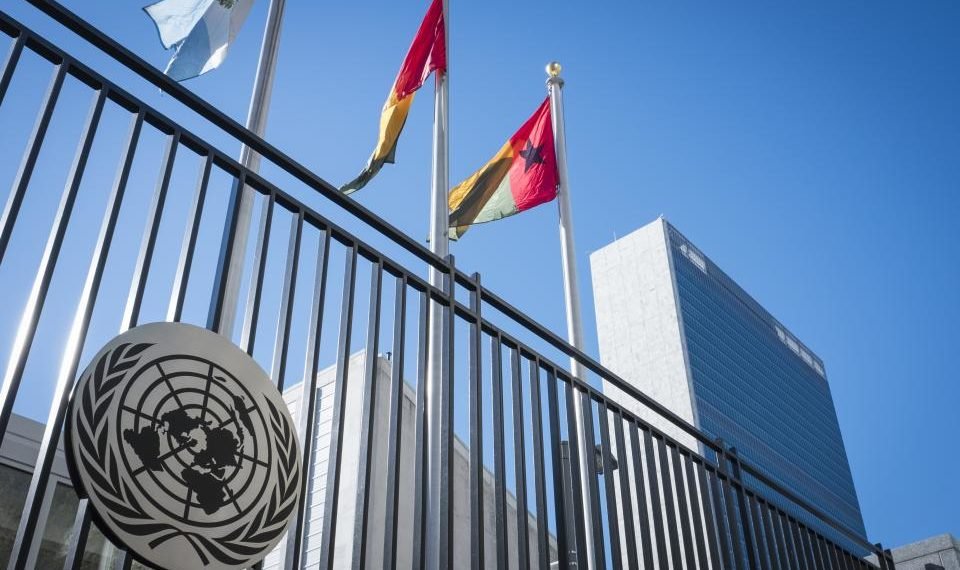The United Nations Commission on International Trade Law (UNCITRAL) has elected Ghana as the Vice Chairman of the Commission for a year, 2020- 2021. This took place during the 53rd Session of the UNCITRAL on July 6, in New York, USA. The session, which will end on the 17th of this month is being held virtually.
UNCITRAL is the core legal body of the United Nations system in the field of International Trade Law.
The legal body with universal membership, specializes in commercial law reform worldwide. UNCITRAL was established by the General Assembly in 1966.
Commercial law, which in other jurisdictions is called mercantile law or trade law, is the body of law that applies to the rights, relations, and conduct of persons and businesses engaged in commerce, merchandising, trade, and sales.
The Commission is active in negotiating and producing texts including conventions, model laws and legislative guides in a range of subject areas.
This function is necessary because there is the likelihood of international commerce to be hindered by several factors which include but are not limited to the lack of a predictable governing law or out-of-date laws unsuited to commercial practice.
During the virtual session, the Minister for Trade and Industry, Alan Kyerematen, explained that the Government of Ghana has over the years been working with member states to boost international trade with a keen focus on trade among African states.
He said Ghana would therefore use its one-year mandate to boost productive capacity and promote intra African trade and investments as countries seek to implement Post COVID economic recovery programmes and interventions.
An International Trade Law Expert and the Deputy Chairman of the Ghana International Trade Commission (GITC), Professor Paul Kuruk, would represent Ghana as the Vice Chair of UNCITRAL.
At the moment, there are six Intergovernmental Working Groups within UNCITRAL negotiating texts in the following areas: Micro, Small and Medium-sized Enterprises; Arbitration and Conciliation; Investor-State Dispute Settlement Reform; Electronic Commerce; Insolvency Law; and Judicial Sales.
The Commission is composed of sixty Member States elected by the General Assembly. Membership is structured so as to be representative of the world’s various geographic regions and its principal economic and legal systems. Members of the Commission are elected for terms of six years, the terms of half the members expiring every three years. Ghana’s membership will expire in 2025.
In most countries, international trade represents a significant share of gross domestic product (GDP).
In the Addis Ababa Action Agenda, States endorsed
“the efforts and initiatives of the United Nations Commission on International Trade Law, as the core legal body within the United Nations system in the field of international trade law, aimed at increasing coordination of and cooperation on legal activities of international and regional organizations active in the field of international trade law and at promoting the rule of law at the national and international levels in this field.”
Even though Ghana has a commercial law that regulate the conduct of business in the country there are substantial gaps in this law.
Currently, Ghana does not have any legislation on consumer protection. However, a draft consumer protection bill has been discussed in Parliament and is expected to be promulgated soon.
In an advocacy paper, CUTS International pointed out the risk of Ghana not having a consumer protection Act.
“Imagine, a consumer walks into a shop to buy an item and takes it home and changes his or her mind. In about 99% of scenarios in the country, the consumer will not be able to return it because the shop has clearly written: goods sold are not returnable. Because of this phenomenon of not being able to return goods bought or cancel services after signing the contract, our marketplace has become a junkyard for inferior goods.”
They go on further to state that, Ghanaian governments have neglected this important facet of trade law.
“Over the past ten years, there have been various attempts by the government to get the Consumer Protection Law passed. Various presidents have come and gone, yet the progress has painstakingly been slow
“The state has not done much when it comes to consumer protection. The current government promised in Chapter Two, Section XII, page 31, its 2016 Manifesto ‘to protect Ghanaians from inferior goods, products, and services, and facilitate the passage of a Consumer Protection Law.’”
Furthermore, Ghana at the moment, has no national competition law or policy in place. As there is no specific law on competition, there is no regulation and in that sense merger controls are also non-existent in the country.
Again, as a result of no competition law in the country, restrictive practices are therefore not regulated, which means that abuse of dominance by bigger businesses are not checked by any law provision. Logically, therefore, there are no specific sanctions with regard to competition law.
There are a plethora of consequences when there is no law checking competition in the commerce space in a country. One very cardinal effect is Dumping. Dumping is a kind of injuring pricing, especially in the context of international trade. It occurs when manufacturers export a product to another country at a price below the normal price with an injuring effect. The objective of dumping is to increase market share in a foreign market by driving out competition and thereby create a monopoly situation where the exporter will be able to unilaterally dictate price and quality of the product.
For instance Ghana has been battling with the dumping of goods from China, which are mostly inferior and therefore less costly and as such crudely driving out competition. This obviously have a dire impact on local manufacturing.
The election of Ghana to the Vice Chairmanship position of the body that regulates the international law on trade will therefore be keenly expected to have an impact on the country’s commercial law.




















